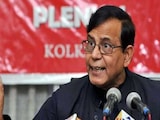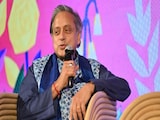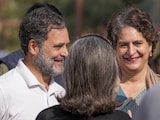I was born in the Indian Railways township of Tundla, a major junction on the historic Delhi-Howrah trunk route, in the heartland of Uttar Pradesh. The town had a population of just 30,000 then, divided almost equally between the railwaymen and their dependents and 'the townwallahs', as the others - shopkeepers, traders, professionals and some farmers - living there were fondly called.
Tundla was like a microcosm of India, with people from all parts of the country, representing all religions, faiths, languages, traditions, colours and festivals, living there. Ramlila, Durga Puja and Guru Parva festivities always fascinated me, as did the sombreness of the Muharram processions. Nobody ever asked me my caste or, for that matter, my religion. My parents were refugees, thanks to the unfortunate Partition. My father had to leave behind his ancient village in the Frontier, bordering Afghanistan, and my mother had to flee from Mianwali in western Punjab. But it did not matter to our neighbours or friends. It was a childhood full of carefree joy, play and happiness. The whole town was like a family, which would transform into a big mela (a fair) on occasions like Diwali, Durga Puja and 'chhabbis janvary' (January 26, the Republic Day of India). I did not know anything about caste. Two families living opposite our house were Dalit, which I had heard - mostly in whispers - from the priest of our local temple, but we all prayed together, celebrated together, and often ate together.
Facing The Caste Question
I am sure the caste fissures were all there, and probably profoundly, but they were under the radar, never paraded nakedly. Caste was a reality, a big social cleavage in villages just outside our microcosm, but I also know for sure that most even in those villages would have wanted to be like us.
Honestly, I did not know - and did not care to know - my caste until I was already settled, had travelled all around the world, married and even had the first child. The 1990 violence over the implementation of the Mandal report shattered me. Suddenly, everybody was asking each other about their caste. If you used only 'Kumar' or 'Singh' or 'Bharti' as your last name, people were careful not to offend you, staying neutral on the Mandal debate in social gatherings. It was in such an atmosphere and anxiety I called up my father one evening to ask him about our 'caste'. He was baffled. All he managed to say was, "We are Hindus, Panjabi Hindus." I persisted, "That I know, but what is our caste ... I mean caste?" I listed out all the four varnas and asked him to tick the right box. He said, "We are Arora. I do not know beyond that." There was no Google in those days. My probing ended there, and I did not care to find out more. Being an Indian was all that mattered to me - and still does.
The Meaning Of A Caste Census
But what if a government led by parties who promote a national caste survey actually conducts such a study? What if they knock at my door with a lengthy form asking my caste, insisting that I either declare my caste or face punishment? What if they do not accept 'Arora' as a caste or do not have it listed in their miles-long list of all castes, sub-castes and so on? What if I write only 'Hindu Indian' in response to my caste? I also wonder whether leaders from these parties, if voted to power, would make caste declaration mandatory for other public services too: airport immigration counters, banking, etc. I wonder whether they ever discuss caste with their own children at the dining table.
A caste survey at the national level might deliver some perceived dividends to some political parties, but at what cost? At the cost of dividing a population of over 750 million young Indians, especially those living in urban and semi-urban areas, into unfamiliar verticals, or even silos, and placing them in an atmosphere they would be extremely uncomfortable in. Why are some of our politicians so disconnected from the aspirations and dreams of young Indians? Yes, I know, caste is still a reality, unfortunately, in many parts of the country. But why not go for scientific surveys, preferably digital, to render India free from ills like illiteracy, poverty, caste system, discrimination against women, etc, as envisaged in the Constitution?
Such surveys can measure, for instance, why some parts of the country have been left behind economically and socially and what needs to be done as a nation to pull them into the national mainstream. We need studies to find out why not a majority of our colleges and universities are as good as, say, Delhi University or Jamia Millia Islamia. We need surveys to know why a large number of young people prefer government jobs over entrepreneurship in some states, why a farmer's yield is still below international standards, and why there are still so few new-generation women entrepreneurs in the country. All that 1.4 billion Indians want today, after all, is a united and developed India.
(Narendra Taneja is a senior Bharatiya Janata Party leader and well-known energy expert)
Disclaimer: These are the personal opinions of the author















